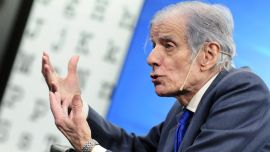Fares for pensioners, students and people with disabilities will rise from 4 pesos to 6.75 pesos (US$0.37) by June. Taxi-users will also be hit with price hikes. On the same day the national government raised transport prices, its City counterparts announced proposed increases in the base rate for taxi fares – from 32.60 pesos to 39.10 pesos (US$2.12) – with metres to rise in intervals of 3.91 pesos (US$0.22), up from the current 3.26 pesos. Drivers will also be hit with more costly VTV registration fees at 931 pesos (US$50) for vehicles and 348 pesos (US$18.80) for motorbikes. The base rate for tow-aways will also increase, this time to 950 pesos (US$51.50).
MIXED REACTIONS
The news of increased fares was met with a mixed response, with some regretting the impact price increases will have on lower-income passengers and others celebrated the winding back of what they consider generous and outdated subsidies. Former transport minister Florencio Randazzo cautioned that the increases meant “less money in workers’ pockets.” Transport Minister Guillermo Dietrich was charged with delivering the news, himself interrupting his own beach holiday to return to balmy BA. His portofolio has sought to sweeten the pill by launching a system – Red Subte – whereby those needing to take more than one bus or using multimodal transport can obtain discounts on the later legs of their journeys, an idea Randazzo supported.
Provincial governments, meanwhile, will be satisfied with the announcement since fewer of their tax pesos will flow into comparably more generous subsidies for passengers in Buenos Aires City.
ECONOMIC IMPACT
Less than a week into the year, the government will thus have to factor an extra 1.7 percent into its 2018 inflation forecast, which was revised upward to 15 percent less than a week previously. Consumer watchdog organisations are already challenging the legality of fare increases which are not preceded by public hearings. Increasing transport fares by 66 percent in the first half of a year in which inflation is not supposed to exceed 15 percent needs to be placed into context, however. In the decade preceding the 2001-2002 economic meltdown transport was already expensive under peso-dollar convertibility but then became impossible for the 56 percent of the population falling under the poverty line. In consequence the fares only underwent minimal increases during the caretaker and Kirchnerite presidencies up to 2015, despite inflation of over 800 percent in that period (official figures were fudged after 2007). Virtually freezing fares was only possible on the basis of massive subsidies, which were still 90 billion pesos last year but which the Mauricio Macri administration is intent on slashing in order to reduce the fiscal deficit.






















Comments